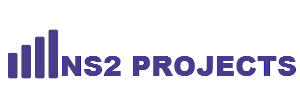- (0)
- 20
Nov -
Author : NS2 Projects Category : NS2 PROJECTS IN DELHI
Tags : Latest Ns2 Projects, Network simulator2 Projects, Ns2 Projects
Content broadcasting over wireless networks heavily relies on Application-Level FEC codes to improve transmission robustness in front of channel erasures. Because they operate in the higher layers of the protocol stack, they benefit from a lot of flexibility. In particular, since streaming applications and bulk transfer applications have different constraints, different packet scheduling strategies may be used by the sender, offering different trade-offs between decoding latency and long erasure burst protection. This work tries to find the best packet scheduling scheme(s) at a sender for a given type of AL-FEC codes.
The contributions are twofold: first we define a methodology to measure the impacts of packet scheduling on AL-FEC performance, both under ITerative (IT) and Maximum Likelihood (ML) decoding, for a large set of channels; then we apply this methodology to GLDPC-Staircase codes, an extension of LDPC-Staircase codes using Reed Solomon codes as inner codes. In previous works we showed that these codes have erasure recovery performance close to ideals codes when packets are transmitted in a random order. In this work we show that these codes perform extremely well when sending source packets sequentially first (a key requirement to keep latency minimum with streaming applications) and then extra-repair packets followed by LDPC repair packets, both in a random order. 1
